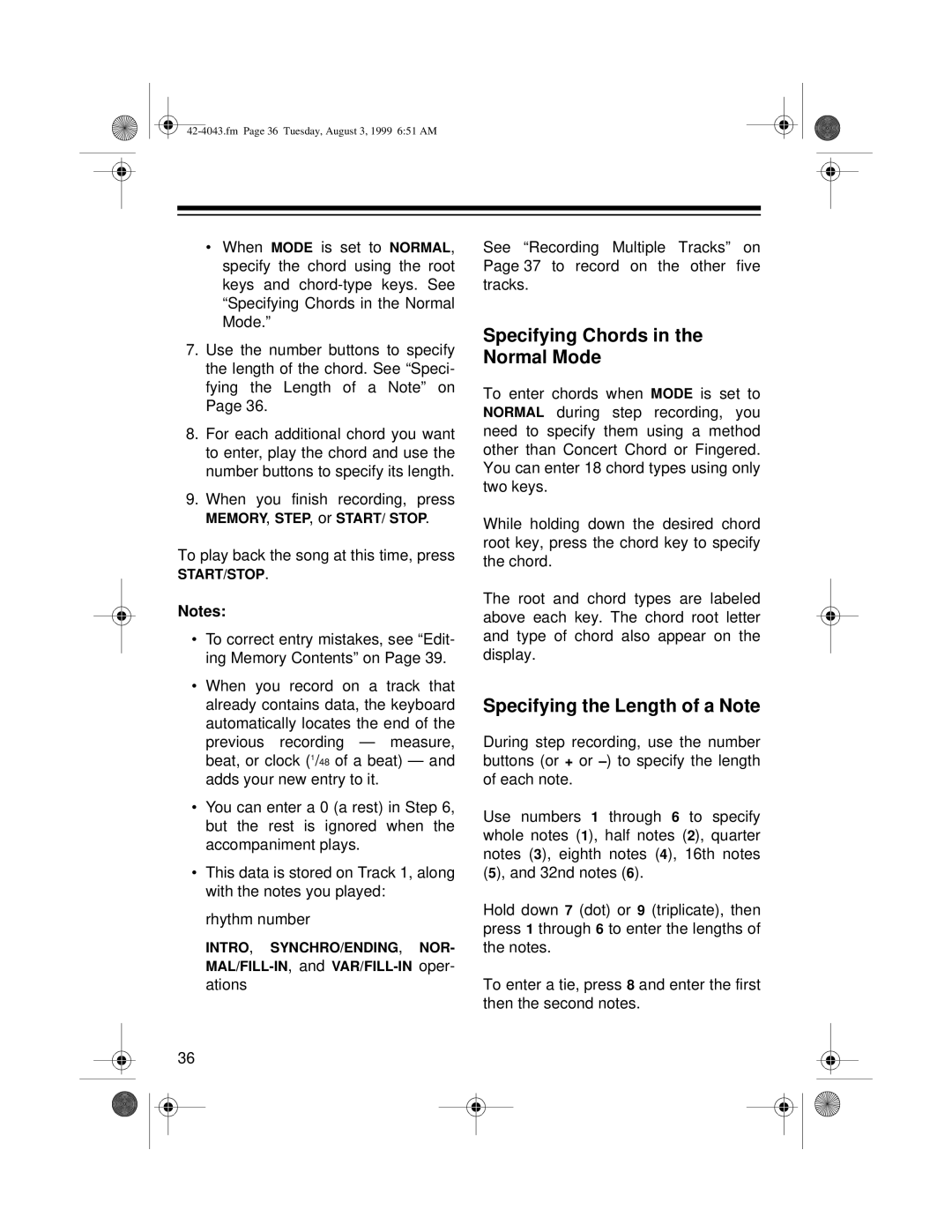
•When MODE is set to NORMAL, specify the chord using the root keys and
7.Use the number buttons to specify the length of the chord. See “Speci- fying the Length of a Note” on Page 36.
8.For each additional chord you want to enter, play the chord and use the number buttons to specify its length.
9.When you finish recording, press
MEMORY, STEP, or START/ STOP.
To play back the song at this time, press
START/STOP.
Notes:
•To correct entry mistakes, see “Edit- ing Memory Contents” on Page 39.
•When you record on a track that already contains data, the keyboard automatically locates the end of the previous recording — measure, beat, or clock (1/48 of a beat) — and adds your new entry to it.
•You can enter a 0 (a rest) in Step 6, but the rest is ignored when the accompaniment plays.
•This data is stored on Track 1, along with the notes you played:
rhythm number
INTRO, SYNCHRO/ENDING, NOR-
36
See “Recording Multiple Tracks” on Page 37 to record on the other five tracks.
Specifying Chords in the Normal Mode
To enter chords when MODE is set to NORMAL during step recording, you need to specify them using a method other than Concert Chord or Fingered. You can enter 18 chord types using only two keys.
While holding down the desired chord root key, press the chord key to specify the chord.
The root and chord types are labeled above each key. The chord root letter and type of chord also appear on the display.
Specifying the Length of a Note
During step recording, use the number buttons (or + or – ) to specify the length of each note.
Use numbers 1 through 6 to specify whole notes (1), half notes (2), quarter notes (3), eighth notes (4), 16th notes (5), and 32nd notes (6).
Hold down 7 (dot) or 9 (triplicate), then press 1 through 6 to enter the lengths of the notes.
To enter a tie, press 8 and enter the first then the second notes.
